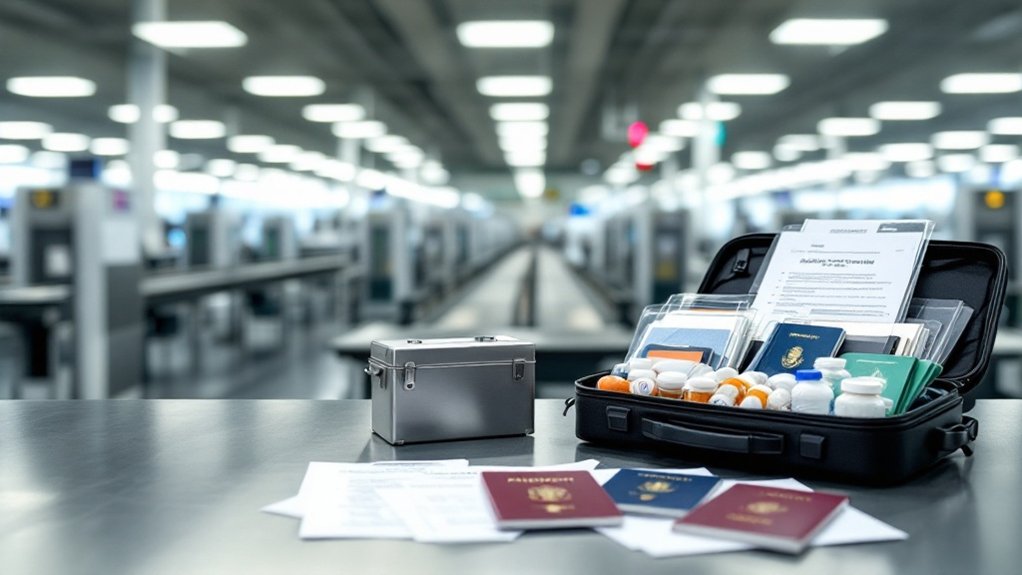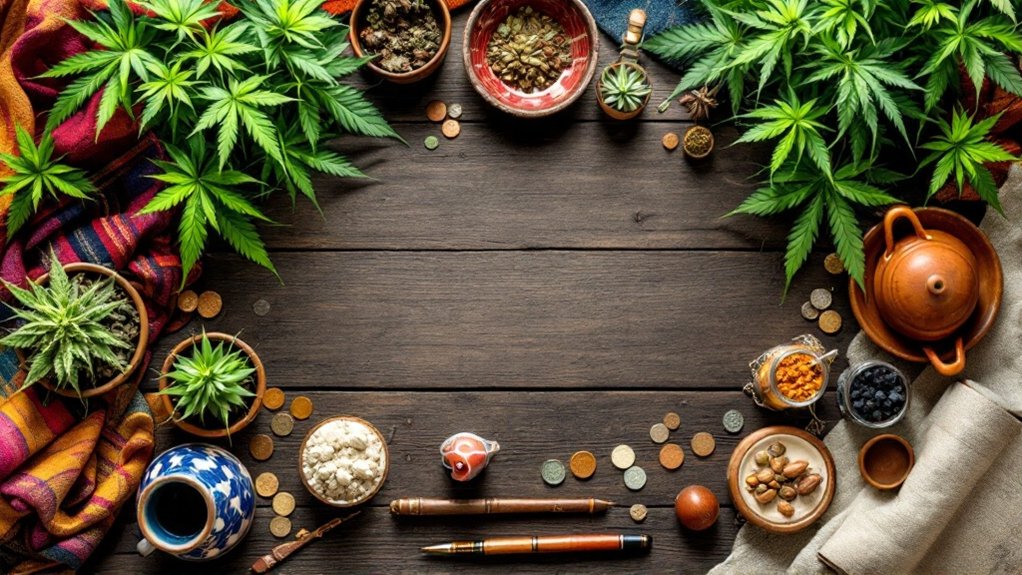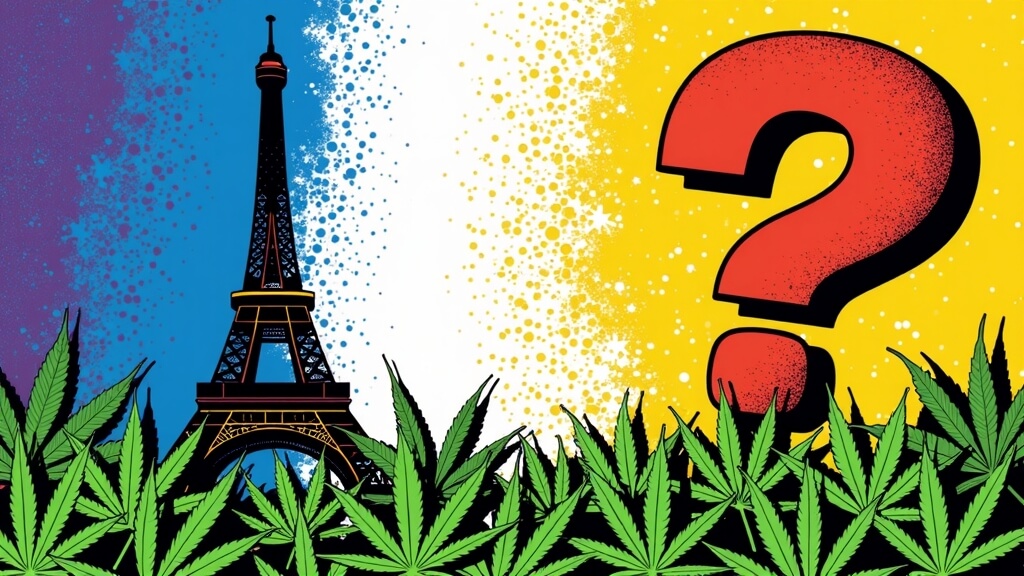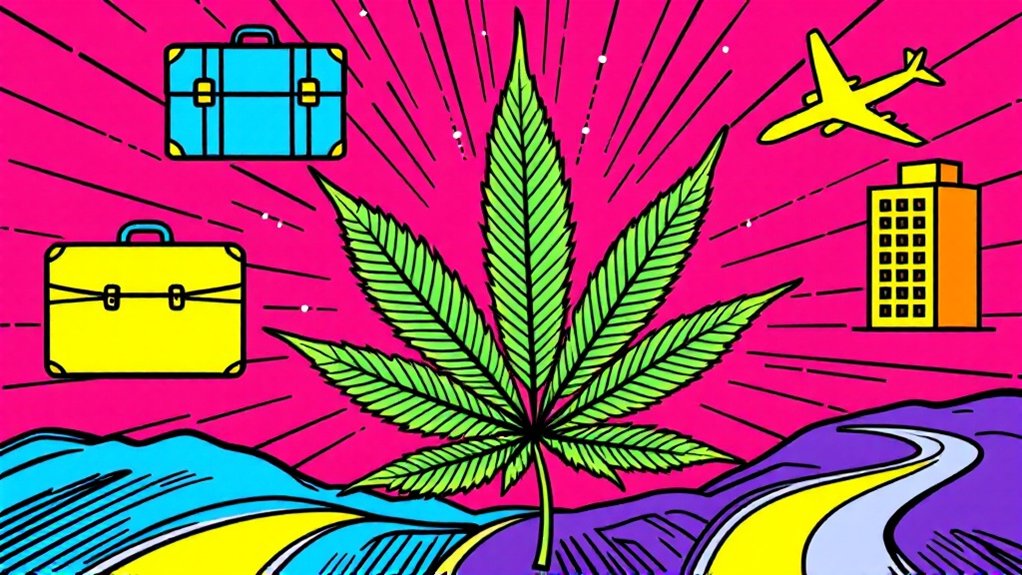International cannabis travelers face a complex web of laws that shift dramatically at every border crossing. Countries like Singapore impose death penalties for trafficking while Canada welcomes recreational use, creating a legal minefield that catches thousands of unprepared visitors annually. The stakes couldn’t be higher. One wrong move transforms a vacation into a legal nightmare, with enforcement agencies increasingly sophisticated in detection methods. Even legal medical patients discover their prescriptions become contraband the moment they cross certain international boundaries, leaving many wondering exactly where the invisible legal tripwires lie.
Understanding Global Cannabis Laws and International Border Enforcement

Why do seasoned travelers often describe cannabis as the most legally treacherous substance to navigate across international borders? The answer lies in a complex web of conflicting jurisdictions and zero-tolerance enforcement policies.
Cannabis remains illegal under most international treaties, including the 1961 UN Single Convention on Narcotic Drugs. Only a minority of countries like Canada and Uruguay have legalized recreational use. Smuggling across borders can incur trafficking charges and potential years of imprisonment, even between neighboring countries with legal cannabis frameworks.
Border agencies worldwide strictly prohibit cannabis regardless of local legalization status. U.S. federal law criminalizes possession, importation, or exportation despite state-level legalization. Violations can result in membership revocation for trusted traveler programs like Global Entry, eliminating expedited border clearance privileges.
International travelers risk prosecution in transit and destination countries, even when products are legal at home. Customs officials employ baggage scans, canine units, and detailed questioning to detect violations, often resulting in seizure, fines, and permanent travel record marks. Violations can also impact future admissibility into countries, creating long-term consequences for international travel privileges.
Country-Specific Penalties and High-Risk Destinations for Cannabis Travelers
The global patchwork of cannabis penalties creates a minefield where travelers face consequences ranging from modest fines to execution, depending entirely on geography.
Cannabis laws transform international travel into a high-stakes gamble where a single border crossing can mean the difference between freedom and death row.
Singapore’s zero-tolerance approach means death sentences for trafficking over 500 grams, while possession triggers caning and lengthy imprisonment.
Malaysia enforces mandatory capital punishment at just 200 grams.
Middle Eastern destinations prove particularly unforgiving. UAE authorities arrest tourists for trace residue in bloodstreams or CBD oil in luggage, imposing minimum two-year sentences regardless of amount.
Japan maintains strict prohibition since 1948, delivering up to five years for simple possession.
Indonesia enforces the death penalty for cannabis trafficking as part of viewing drugs as a severe national problem.
China executes individuals for cannabis trafficking under broad narcotics laws, with estimated executions in the hundreds annually.
Several countries retain symbolic death penalties rarely enforced. Sri Lanka maintains capital punishment on paper but hasn’t executed anyone since 1976, creating legal uncertainty for travelers maneuvering theoretical versus practical enforcement realities.
Essential Safety Strategies and Legal Compliance for Cross-Border Travel
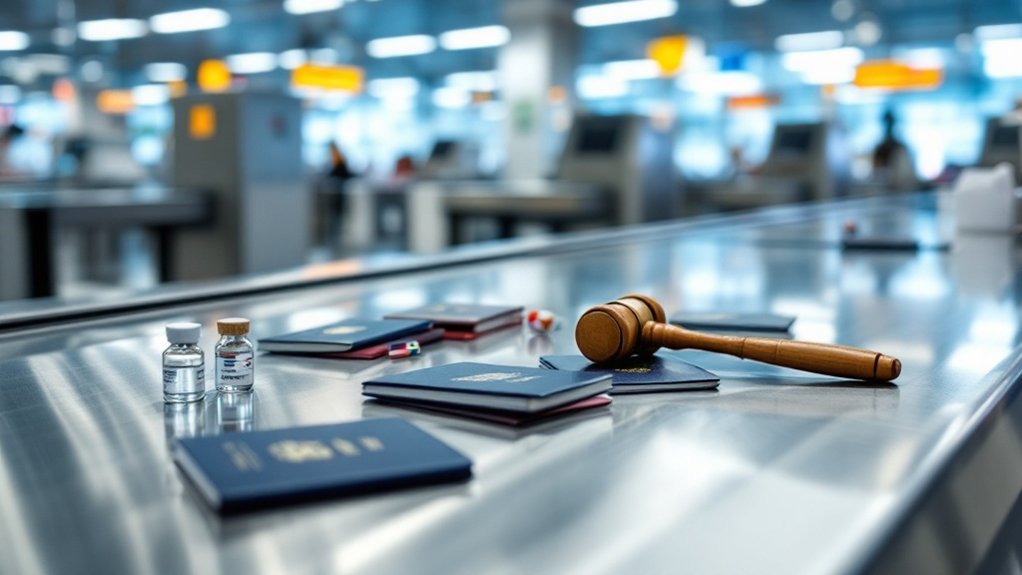
How can cannabis travelers navigate the labyrinthine maze of international laws without landing in foreign detention centers? Research becomes paramount. Travelers must consult official government sources for both departure and destination countries before packing anything cannabis-related.
Original packaging with clear labeling proves essential for demonstrating legal THC content, though documentation won’t override import prohibitions.
Airport amnesty boxes offer last-minute salvation for nervous travelers. These disposal units prevent escalated charges that concealment strategies inevitably trigger.
Low-THC products below 0.3% may gain entry in certain jurisdictions, but verification through Certificates of Analysis remains mandatory. Patients should maintain current doctor’s recommendations as additional documentation when traveling with any cannabis-related products.
Prescription pharmaceutical cannabis requires advance permissions and explicit official approval. Even then, countries like Japan and Singapore maintain zero-tolerance policies regardless of medical status. International cannabis trafficking can result in lengthy prison sentences that permanently alter travelers’ lives.
The golden rule? When in doubt, leave it out.
